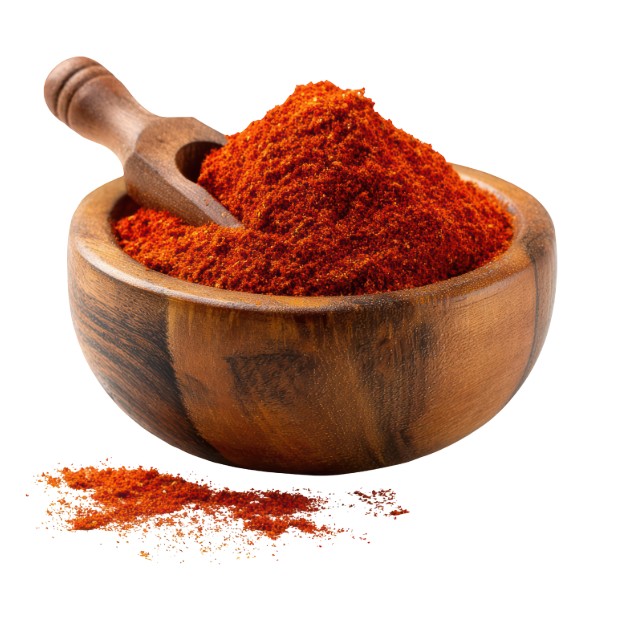
|
Product: Paprika (Capsicum annuum, L)
|
|
| Basic Information: Crop originally from South America, it is cultivated on the northern, central and southern coast of Peru and in Bolivia. The production of chili paprika in Peru occurs throughout the year on the coast where the optimal conditions are found to obtain a quality product. | |
|
Origin: Peru
|
Region: Trujillo, Lima, Ica, Arequipa, and Moquegua.
|
|
Seasonality:
Jan
Feb
Mar
Apr
May
Jun
Jul
Aug
Sep
Oct
Nov
Dec
|
|
|
Certifications: Kosher
|
Available presentations: Dehydrated whole, flakes, and powder
|
|
Suggested industrial applications: Food industry: meat products, sausages, preparations, baking, healthy snacks.
|
|
|
Uses: Culinary seasoning, spice, seasoning, food additive.
|
|
| Properties: Paprika purifies and lowers cholesterol levels in the blood. By having iron, it promotes the production of red blood cells and the correct oxygenation and nutrition of cells, tissues, and organs. | |
|
Main functionality: Paprika contains potassium which helps the proper functioning of the heart and prevents coronary heart disease. Potassium also helps with proper muscle functionality and bone development.
|
|
| Secondary functionality: Increases saliva production, which has a positive impact on good digestion. It has a large amount of vitamin C that helps improve flu and cold conditions. Likewise, it strengthens the immune system by also containing vitamin A. | |
Nutritional Table:
| Components / Components | Per 100g / Per 100g |
| Calories / Calories | 324 kcal |
| Water / Water | 8 g |
| Carbohydrates / Carbohydrates | 6.6 g |
| Proteins / Proteins | 10.58 g |
| Total fat / Total fat | 5.81 g |
| Fiber / Fiber | 69.86 g |
| Ash / Ash | 6.6 g |
| Calcium / Calcium | 45 mg |
| Phosphorus / Phosphorus | 61 mg |
| Iron / Iron | 159 mg |
| Thiamine / Thiamine | 0.081 mg |
| Riboflavin / Riboflavin | 1.205 mg |
| Niacin / Niacin | 8.669 mg |
| Ascorbic acid / Ascorbic acid | 31.4 mg |